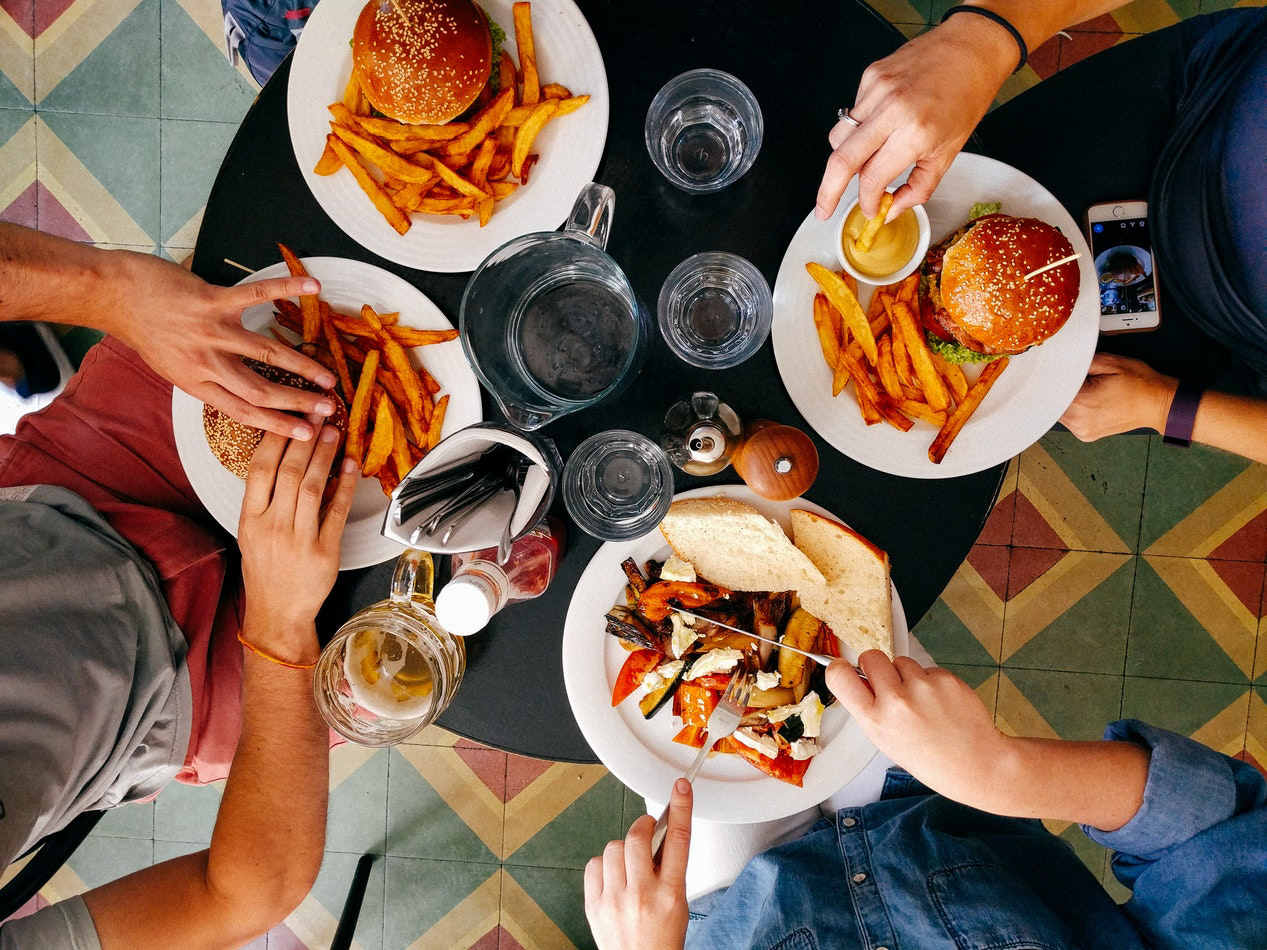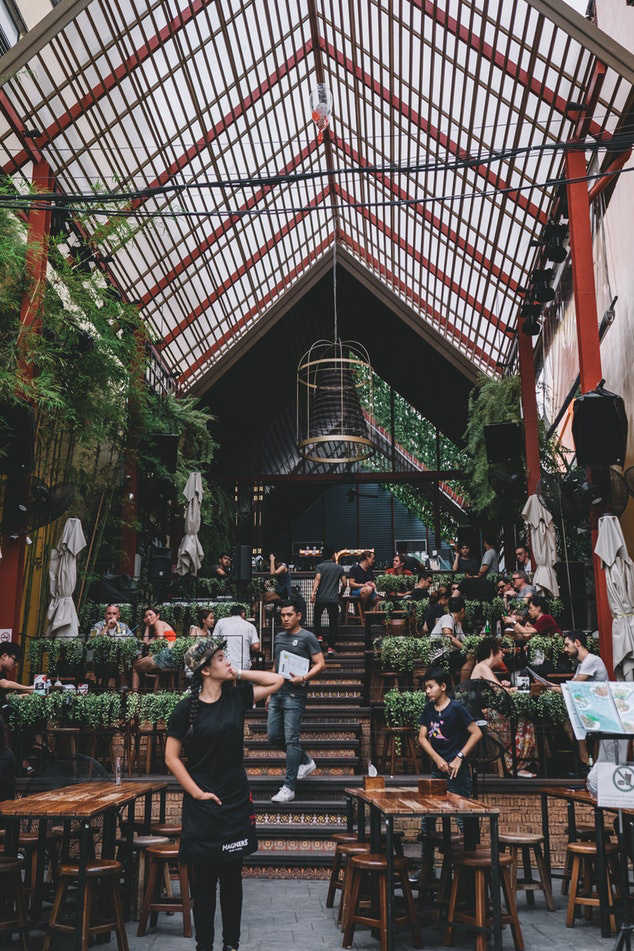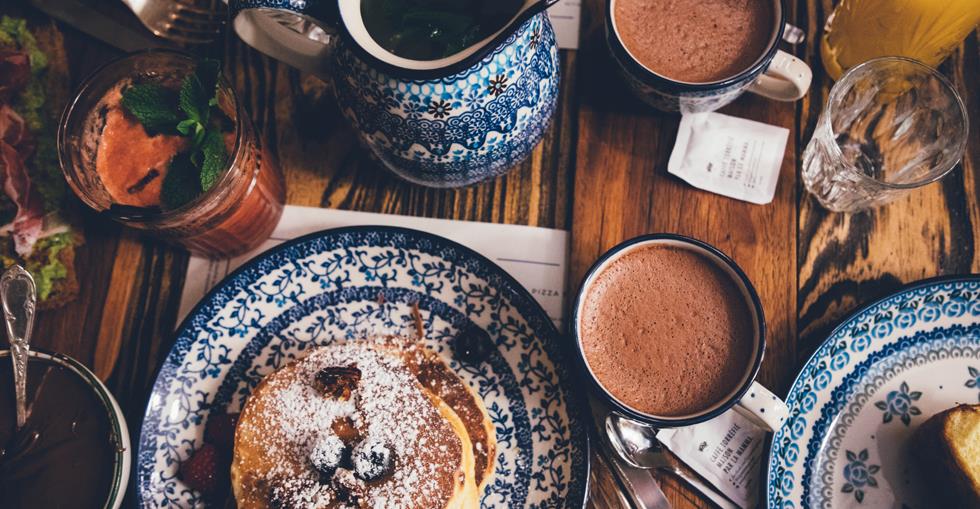Even though the economy in South Africa has experienced a downturn, the restaurant trade is still seeing a slight growth year on year.
Although the criterion for customers is altering in favour of healthy alternatives, takeaways and fast food outlets are also seeing improvements in sales.
Facts and Figures
- There are approximately 85,000 restaurants in South Africa. Of these, 57,000 are street stalls and only 9,000 are full-service restaurants.
- The income recorded for takeaway and fast-food outlets was R170 billion in 2015
- Increase in income generated by the food and beverages industry increased by 3.8% in 2017, and food sales grew by 4.6%.
- In 2017, positive annual growth rates were recorded for restaurants and coffee shops at 8.4%, and takeaway and fast-food outlets at 1.6%.

Trends in the sector
The average income in South Africa has decreased recently, this, in turn, means that people are increasingly looking for bargains and deals.
Better value food is becoming the norm, and cheaper menu items may be the way forward for restaurants looking to make a healthy profit.
Even the larger restaurant chains are focusing on more nutritional food, whilst keeping an eye on environmental impact and sourcing. Many are also investing in vegetarian, vegan and gluten-free options.
This has led to the impact of environmental friendliness and local sourcing being two of the main deciding factors when choosing restaurants or restaurant chains.
Technology has also become more important in the restaurant trade, whether that be front of house streamlining payments, making ordering easier, or behind closed doors in the kitchen. So, it can be advantageous for restaurateurs to look into their options.
Licences and Permissions
 Food establishments need to apply for a trading licence as well as a liquor licence if they are intending to sell alcohol.
Food establishments need to apply for a trading licence as well as a liquor licence if they are intending to sell alcohol.
Serving any type of food means that they also need to apply for a Certificate of Acceptability, which is issued after a health inspection is carried out at the premises to ensure all health and safety regulations are adhered to.
If smoking is allowed in any area of the property, the owners must comply with the Tobacco Products Control Act and conform to the rules governing smoking in public places.
Finally, any music or television broadcast will also need to be licensed under the South African Music Performance Rights Association (SAMPRA) or the Southern African Music Rights Organisation (SAMRO).
Essential skills
You have to be a Jack-of-all-trades to make it as a restaurateur, as there are many facets to running an eating establishment.
You have to be a good manager, have excellent customer service skills, and be able to
The day-to-day skills will include being competent at dealing with customers and queries, managing your kitchen staff and restaurant team, ordering stock promptly, paying bills, organising advertising, and menu design.
The ability to hire good staff is a key benefit. If you are planning on being the head chef yourself, then obviously the skills required for that are self-evident, but finding staff that share your vision for your restaurant will be essential to your success.
Your front-of-house team will be the first impression customers have of your restaurant, and they must be welcoming and efficient to ensure repeat business. It goes without saying that your kitchen staff should also be able to produce good food, ideally within a budget, while maintaining high hygiene standards.
Buying a business
Firstly, you will have to decide whether you want to buy an existing restaurant or set up your own from scratch. The benefits of buying a going concern include cashing in on their current reputation and customer base. Obviously, this is only advantageous if the business is thriving, but the same applies if you are considering opening a franchise.
Make sure the location you choose is one that will support a restaurant, and maybe even sustain growth. There is a huge benefit to a location if it can bring in passing traffic, and you don’t need to rely on advertising or repeat customers to make a profit. If buying an existing restaurant, check that the finances are healthy, and they are bringing in enough sales to make a profit.
You will need to consider all your outgoings, from keeping enough stock, labour costs, rent, utilities, insurance, taxes, licence costs, so that you can calculate whether you would be able to make a profit with the sales that the current owners are experiencing.
Buying a restaurant can be a risky experience, but if you do your homework and have the ability to make it work, you could be on to a winner.



